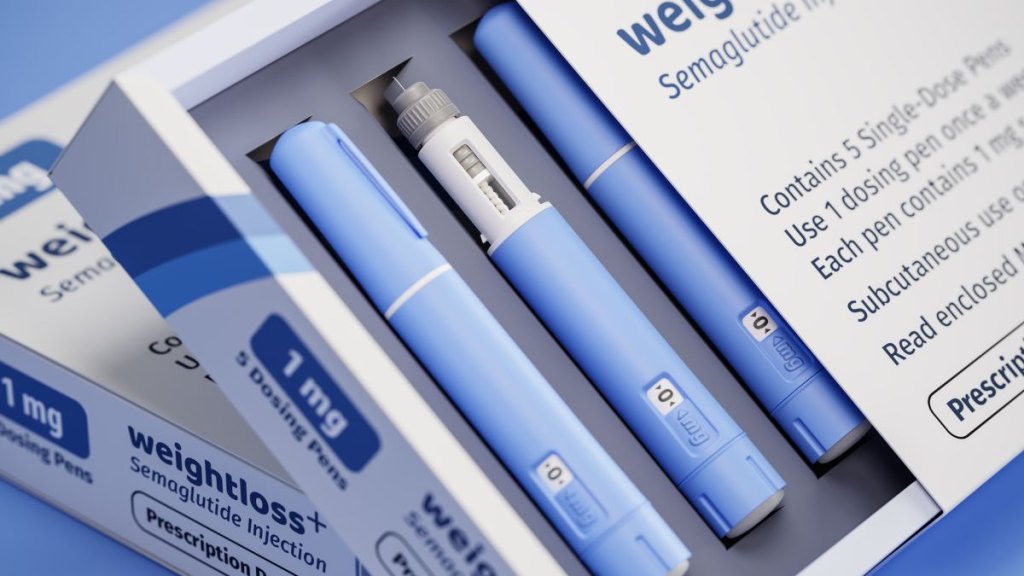One of the biggest obstacles to Ozempic accessibility is cost. If you’re paying for the GLP-1 drug out of pocket, the list price for a four-week supply is a steep $968.52, which is why insurance coverage is a necessity for most people looking to take the type 2 diabetes medication. But will insurance cover Ozempic for prediabetes? We asked experts to explain whether GLP-1 receptor agonists are typically covered by insurance, and what alternatives you can consider when they’re not.
Ozempic is FDA-approved to treat type 2 diabetes
Before we dive into prediabetes, let’s backtrack just a bit to recap the formal purpose of Ozempic: to treat type 2 diabetes in conjunction with a healthy diet and exercise. Its active ingredient, semaglutide, mimics the GLP-1 hormone (naturally found in our bodies) to stimulate insulin production and lower blood sugar levels.
Semaglutide also works to reduce hunger and signal fullness, leading to decreased calorie intake and a side effect of weight loss.
Ozempic and prediabetes

While Ozempic and other semaglutide medications are approved to treat type 2 diabetes, they can be beneficial for those with prediabetes as well. Prediabetes is a condition in which blood glucose levels are higher than normal, but not high enough to warrant a diabetes diagnosis. If you have prediabetes, you are at a higher risk of developing type 2 diabetes.
Ozempic can help your body better respond to the insulin your pancreas makes, increasing insulin sensitivity. This ultimately improves glucose control and helps shrink fat cells get smaller, explains Holly Lofton, MD, Obesity Medicine specialist at NYU Langone Health.
Ozempic for prediabetes: Will insurance help cover the cost?
The Food And Drug Administration (FDA) has approved Ozempic for managing type 2 diabetes only—it is not approved for weight loss. So when doctors prescribe Ozempic for weight loss, it’s considered “off-label”. Most commercial insurance providers will cover some or all of the cost of Ozempic when used to treat type 2 diabetes or the drug may also be covered under Medicare Part D and Medicaid. Your out-of-pocket prescription cost depends on your specific insurance plan benefits, deductibles, coinsurance or co-pays.
However, they are unlikely to cover the cost of GLP-1 drugs for off-label usage, like weight loss. “We have been finding it unlikely for the insurance company to approve Ozempic for prediabetes,” says Tayler Busack, Health Insurance Advisor with AZ Health Insurance Brokers. “Ozempic is an expensive medication, and it has increased in popularity over the past couple of years. Companies won’t cover it unless they have to.”
An insurance company will generally take a look at your individual plan’s formulary (a list of approved medications) to see if Ozempic is included, and then have your doctor start the pre-authorization process, Busack explains.
To offer coverage for Ozempic, the majority of providers strictly require evidence of “actual diabetes with a hemoglobin A1c above 6.5,” says Dr. Lofton. For comparison, the A1c range for a diagnosis of prediabetes is 5.7 to 6.4 percent.
Affordable alternatives to Ozempic for prediabetes

There are currently no alternative drugs approved for the treatment of prediabetes. In fact, Dr. Lofton says there are no medications for prediabetes in general, as lifestyle modification—eating well, exercising and losing weight—is the standard of care.
Metformin is an oral medication that is gaining some traction, but like Ozempic, it is only FDA-approved to treat type 2 diabetes.
While insurance companies won’t cover metformin without seeing an official diabetes diagnosis, Dr. Lofton says many doctors will prescribe the anti-diabetic off-label for prediabetes because it is relatively inexpensive.
A 30-day supply of oral metformin tablets typically costs around $11, though exact prices will vary based on your pharmacy and dosage. Tip: It’s worth checking out prescription discount programs like GoodRx and SingleCare—available for those with insurance or without—which can bring the price down to as low as $2 for a 30-day supply in some cases.
This content is not a substitute for professional medical advice or diagnosis. Always consult your physician before pursuing any treatment plan.




